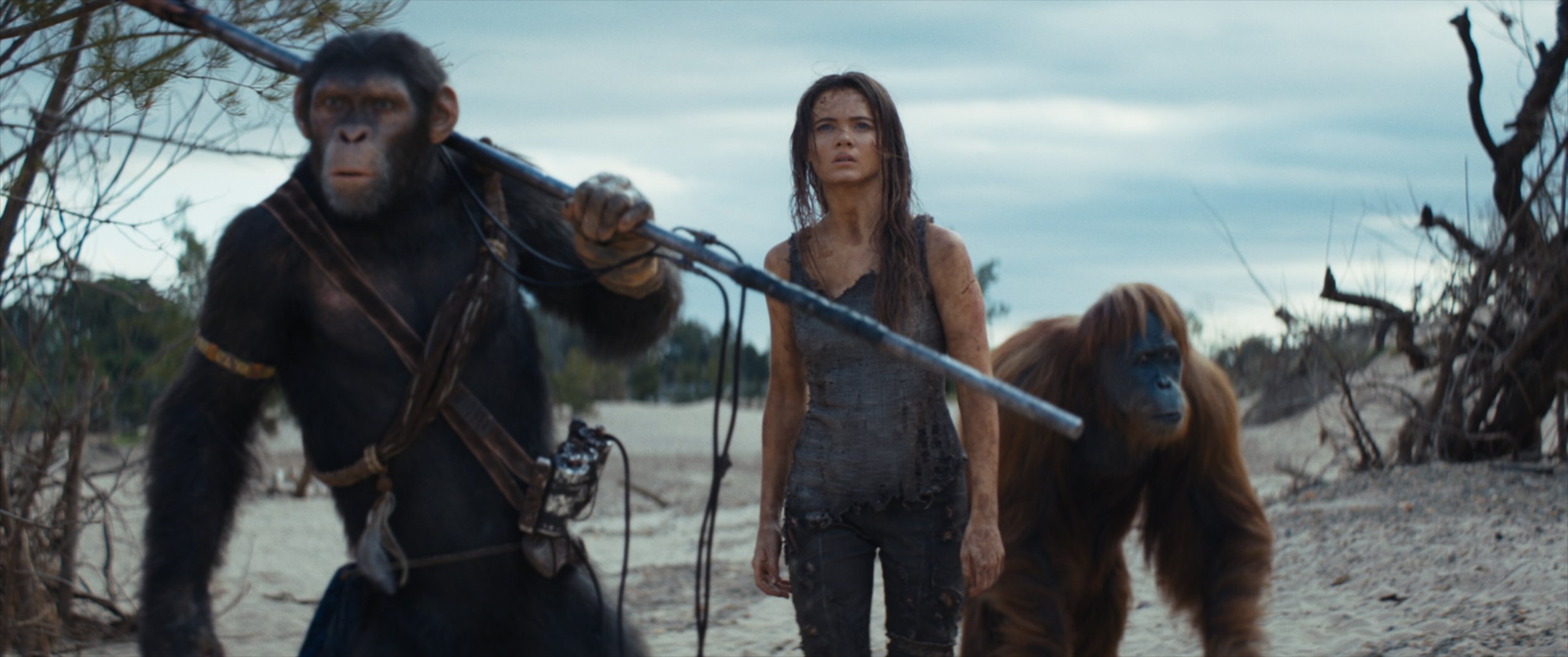'Kingdom of the Planet of the Apes' Review: Another Jewel in the ‘Apes’ Crown
Have you ever pondered the potential outcome of a world led by apes - where humans are regarded as stray animals? This cinematic masterpiece, set in the aftermath of Caesar's rule, skillfully preserves his legacy while advancing the narrative, introducing fresh colonies and uncharted territories. The visual effects are awe-inspiring, and the cinematography, animation, and CGI have seen remarkable enhancements since the previous installment.
‘Kingdom of the Planet of the Apes’ continues the successful franchise reboot that began in 2011 with ‘Rise of the Planet of the Apes,’ evolving into a trilogy centered around Caesar, portrayed by the talented Andy Serkis as an intelligent and peaceful ape leader. The films utilized remarkable motion capture technology to bring CGI animals to life with stunning realism. Now, under the direction of Wes Ball, who is known for directing The Maze Runner trilogy, the film leaps forward in time, years after the death of Caesar with a new set of characters, signaling a fresh narrative direction. While not exactly a reboot, this latest installment relies heavily on captivating motion capture techniques and adds something new and fascinating to this installment.
The first act unfolds at a purposeful and leisurely pace, devoting time to establishing the story and laying the groundwork for the subsequent acts. Certain scenes throughout the film are characterized by trivial conversation and could benefit from either being shortened or removed altogether to enhance audience engagement. The second act primarily focuses on Noa's journey, portrayed by Owen Teague, as it builds towards the more captivating events of the third act. During this phase, both the dialogue and plot intensify, capturing the audience's interest and leaving them eager for more by the film's conclusion.
The Kingdom of the Planet of the Apes unites its characters in a somewhat foreseeable manner, primarily aimed at laying the groundwork for potential sequels rather than deeply exploring the underlying themes. The remarkable team at Wētā consistently delivers new wonders in animating digital apes, supported by the skilled cast and their physically demanding work in motion-capture suits. The visual effects employed to transition modern Planet of the Apes' motion-capture-suited humans into lifelike apes have consistently been remarkable. The collaboration between Weta's post-production efforts and the actors' performances creates a more intricate and uncanny effect, showcasing the significant evolution of these apes compared to their legendary predecessors. The resulting characters are entirely convincing, exhibiting realistic behavior and emotions akin to humans. The meticulous attention to detail, from the depth of expression in their eyes to the intricacies of their movements, and the clarity of their voices, is all simply astonishing.
Kingdom of the Planet of the Apes doesn't delve into the same emotional complexities as Dawn of the Planet of the Apes or War for the Planet of the Apes, and it's not aiming to deliver the same gut-punching impact. However, as the series transitions into its post-Caesar phase, Planet of the Apes remains on solid ground. Moving the timeline forward proves to be a strategic move, allowing director Wes Ball to portray a significantly altered world, while screenwriter Josh Friedman introduces an engaging adventure narrative. While it may be a departure from its predecessors, this iteration of Planet of the Apes still manages to maintain a sense of continuity with what came before.



